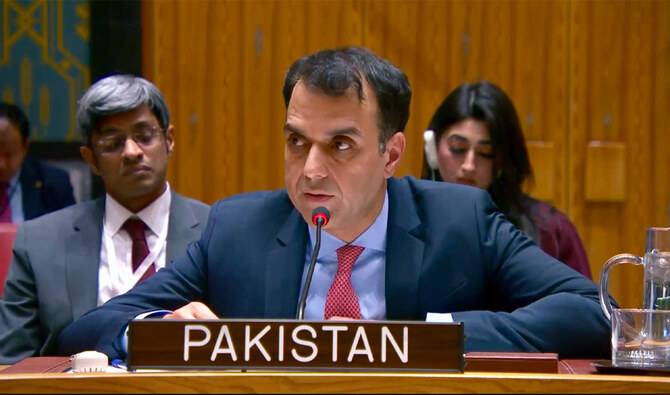Transition to clean energy: Pakistan seeks supportive global policies for developing countries

Stay tuned with 24 News HD Android App

Pakistan has called for supportive global policies to enable cash-strapped developing countries to navigate energy transition.
The demand came at an event Islamabad co-sponsored to commemorate the ‘International Day of Clean Energy’ at the United Nations (UN) headquarters in New York.
The International Day of Clean Energy, observed on January 26 each year, is a UN-designated day to raise awareness and encourage action toward a transition to clean energy sources for the benefit of people and the planet.
The Pakistani state media reported on Sunday that the event at the UN headquarters was organized by the “Group of Friends of Energy,” an informal coalition of member states that actively collaborate and advocate for policies and initiatives focused on promoting sustainable energy access and development on a global scale.
“Developing countries with limited fiscal space are unable to invest in costly energy projects without enhanced access to finance,” Ambassador Usman Jadoon, Pakistan’s deputy permanent representative to the UN, told delegates this week.
“On this International Day of Clean Energy, we must commit to taking the necessary actions, at both national and international level, to achieve our global energy transition goals.”
Analysts say increasing climate threats have accelerated the clean energy policies and big tickets investments that are needed to transition to renewable energy, especially wind and solar energy, around the world.
Fossil fuels are the largest contributor to climate change, accounting for 75 percent of the world’s greenhouse gas emissions, according to the United Nations. The world must slash greenhouse emissions 45 percent by 2030 to cap global warming at 1.5 degrees Celsius above late-19th-century levels. Warming beyond that threshold, scientists warn, could push Earth toward an unlivable hothouse state.
Pakistan is among the countries most affected by climate change, while its contribution to global greenhouse gas emissions is less than 1 percent, according to Pakistani officials. The South Asian country suffered from deadly deluges in 2022, which were blamed on unprecedented monsoon rains and glacier melts due to climate change. The floods killed more than 1,700 Pakistan, affected 33 million and caused more than $30 million losses.
Ambassador Jadoon said developing countries were dedicated to making their contribution to the just energy transition, with Pakistan having committed to increasing the share of renewable energy in its energy mix to 60 percent by 2030.
“We plan on adding an additional 13,000MW [megawatts] of hydro-power capacity by 2030,” he said.
However, Pakistan’s energy transition goals were estimated to cost over $100 billion, the Pakistani envoy said, pointing out that capping global warming at 1.5 degrees Celsius would require $150 trillion investments globally in transition technologies and infrastructure by 2050.
“Undoubtedly, partnerships are essential to aid developing countries in overcoming these obstacles,” he added.
